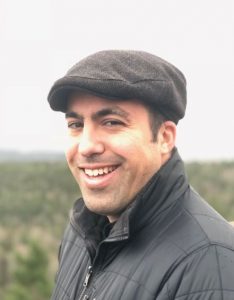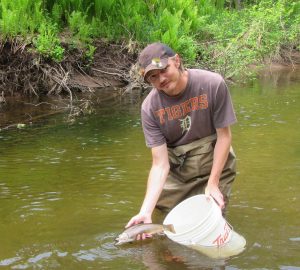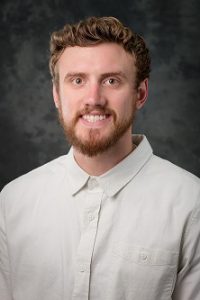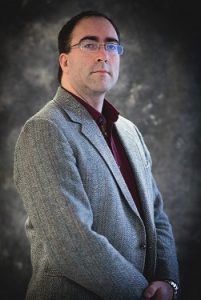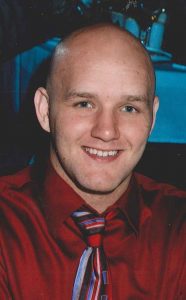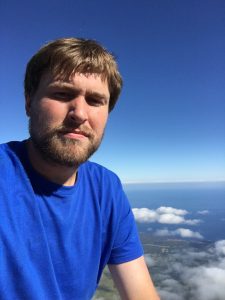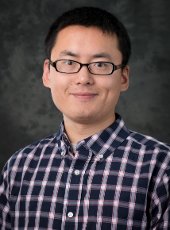Top three GRC poster presentations:
- Janna Brown, Department of Civil and Environmental Engineering
- Laura Schaerer, Department of Biological Sciences
- Avik Ghosh, Department of Chemistry
Top three GRC oral presentations:
- Nabhajit Goswami, Department of Civil and Environmental Engineering
- Nicholas Gerstner, Department of Humanities
- Jeremy Bigalke, Department of Kinesiology and Integrative Physiology
The Graduate School sponsors three awards to honor students that have committed an extraordinary amount of time to their studies, instructing others or serving the graduate community. These awards include: Outstanding Graduate Student Teaching Award, Dean’s Award for Outstanding Scholarship and Graduate Student Service Award.
Outstanding Graduate Student Teaching Award:
Chemical Engineering
- Aaron Krieg
- Daniel Kulas
Chemistry
- Vagarshak Begoyan
- Charles Schaerer
Civil and Environmental Engineering
- Dongdong Ge
- Christa Meingast
- Mohammadhossein Sadeghiamirshahidi
- Darud E Sheefa
- Sarah Washko
Cognitive and Learning Sciences
- CatherineTislar
Electrical and Computer Engineering
- Mehdi Malekrah
Geological and Mining Engineering and Sciences
- Brandi Petryk
Humanities
- Elizabeth Renshaw
Mathematical Sciences
- Jacob Blazejewski
- Nattaporn Chuenjarem
Mechanical Engineering–Engineering Mechanics
- Ahammad Basha Dudekula
- Siddharth Bharat Gopujkar
- Cameron Hansel
- Erica Jacobson
- Luke Jurmu
- Mingyang Li
- Si Liu
- Niranjan Miganakallu
- William Pisani
- Samantha Swartzmiller
- Upendra Yadav
- Zhuyong Yang
Physics
- Lisa Eggart
- Nicholas Videtich
Social Sciences
- Sun Nguyen
- Daniel Trepal
Dean’s Award for Outstanding Scholarship:
Atmospheric Sciences
- Janarjan Bhandari
- Kamal Kant Chandrakar
Biochemistry and Molecular Biology
- Jeffrey Kiiskila
Biomedical Engineering
- Anindya Majumdar
Chemistry
- Mingxi Fang
- Shahien Shahsavari
Civil and Environmental Engineering
- Mohammadhossein Sadeghiamirshahidi
- Xinyu Ye
- Shuaidong Zhao
Electrical and Computer Engineering
- Wyatt Adams
Geological and Mining Engineering and Sciences
- Priscilla Addison
Humanities
- Nancy Henaku
Kinesiology and Integrative Physiology
- Jeremy Bigalke
Mathematical Sciences
- Matthew Roberts
Mechanical Engineering–Engineering Mechanics
- Sampath Kumar Reddy Boyapally
- Oladeji Fadayomi
- Hui Huang
- Xian Li
- Miles Penhale
- Nikhil Appasaheb Shinde
- Rahul Jitendra Thakkar
- Mitchel Timm
- Xiucheng Zhu
Physics
- Chad Brisbois
- Dolendra Karki
School of Business and Economics
- Garrett Mitchell
- David Renaldi
- Gina Roose
- Dylan Steman
Social Sciences
- John Barnett
- Erin Burkett
- Robert Zupko
The Graduate Student Service Award is given to graduate students nominated by the Graduate Student Government Executive Board for their outstanding contributions to the graduate community at Michigan Tech.
Graduate Student Service Award:
- Daniel Byrne, Department of Computer Science
- Nabhajit Goswami, Department of Civil and Environmental Engineering
- Ami Kling, Department of Biomedical Engineering
Michigan Tech is a member of the Midwestern Association of Graduate Schools (MAGS), which solicits nominations for its Excellence in Teaching Award and Distinguished Master’s Thesis Competition.
The MAGS Excellence in Teaching Award participating schools are able to nominate one master’s and one doctoral level graduate students who exemplify excellence in the teaching/learning mission of our university.
Excellence in Teaching Award Nominee:
- Jacob J. Blazejewski , Mathematical Sciences
The MAGS Distinguished Master’s Thesis Competition recognizes and rewards distinguished scholarship and research at the master’s level.
Distinguished Master’s Thesis Competition Nominee:
- Sagda Osman, School of Technology
Michigan Tech is also a member of the Council for Graduate Schools/ProQuest and recognizes nominees for having completed dissertations representing original work that makes an unusually significant contribution to the discipline.
Council for Graduate Schools/ProQuest Nominee:
- Erin C. Pischke, Social Sciences Department
- Lauren N. Schaefer, Geological and Mining Engineering and Sciences Department.
New Graduate School Awards to Graduate Programs Innovations to Enhance Graduate Student Recruitment and Enrollment Award:
- Significant Enhancement in Recruitment and Enrollment Award – For creative strategies to enhance growth in graduate programs. Awarded to Mechanical Engineering-Engineering Mechanics
- Graduate Research Colloquium (GRC) Participation – For highest participation at the GRC. Awarded to Kinesiology and Integrative Physiology, Biomedical Engineering and Chemistry
- Three Minute Thesis (3MT) Participation – For highest participation at the 3MT competition. Awarded to Biological Sciences
The GSG sponsors an Annual Merit Awards Program consisting of four awards that honor the exceptional work of one staff member, one graduate mentor and two graduate students. The recipients of these awards were nominated by their fellow graduate students and selected by the Graduate Student Government Executive Board.
Exceptional Staff Member Recipient:
- Brittany Buschell, Geological and Mining Engineering and Sciences
Exceptional Graduate Mentor Recipient:
- Melissa F. Baird, Social Sciences
Exceptional Student Leader Recipient:
- Karina Eyre, Civil and Environmental Engineering
Exceptional Student Scholar:
- Miles Penhale , ME-EM
Congratulations to award recipients and nominees and a huge thank you to all the presenters, judges, volunteers and GSG supporters for helping make this one of the largest colloquiums in GSG’s history.
